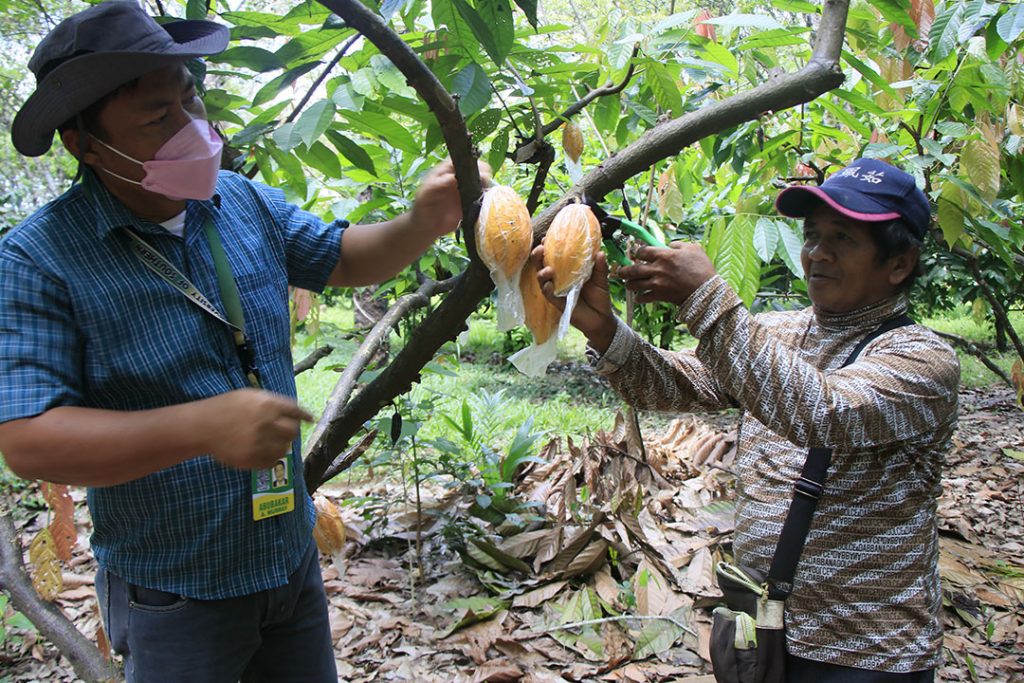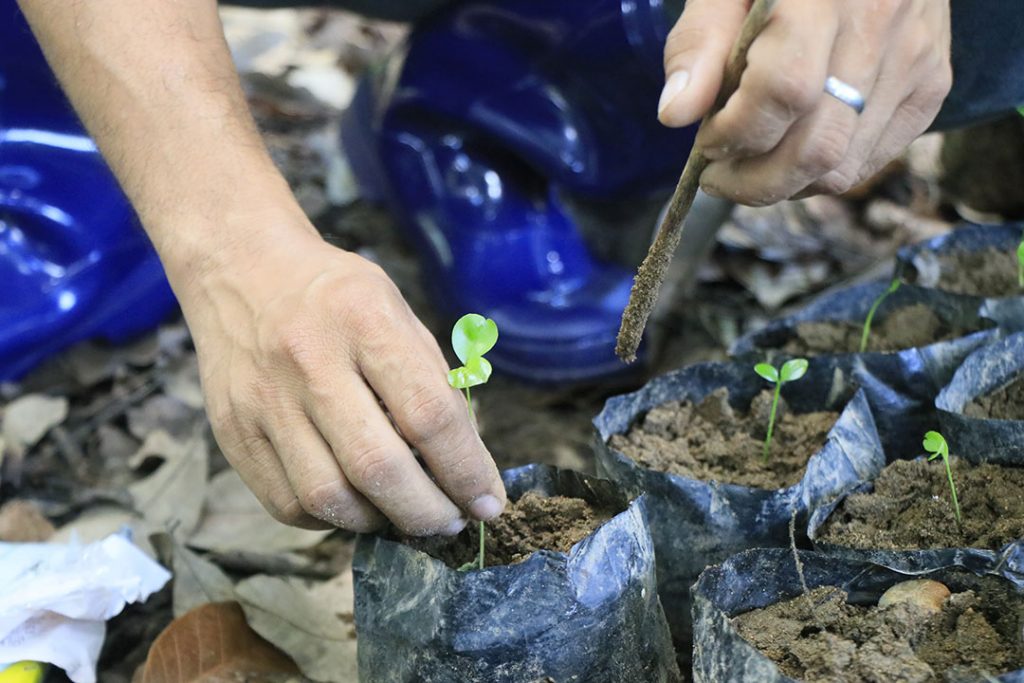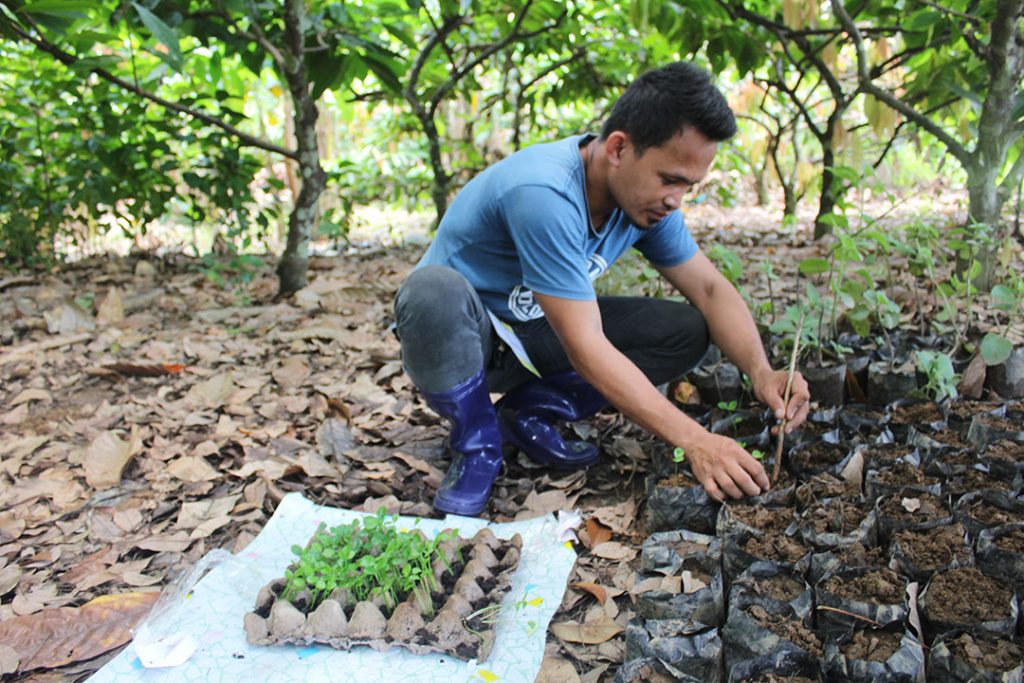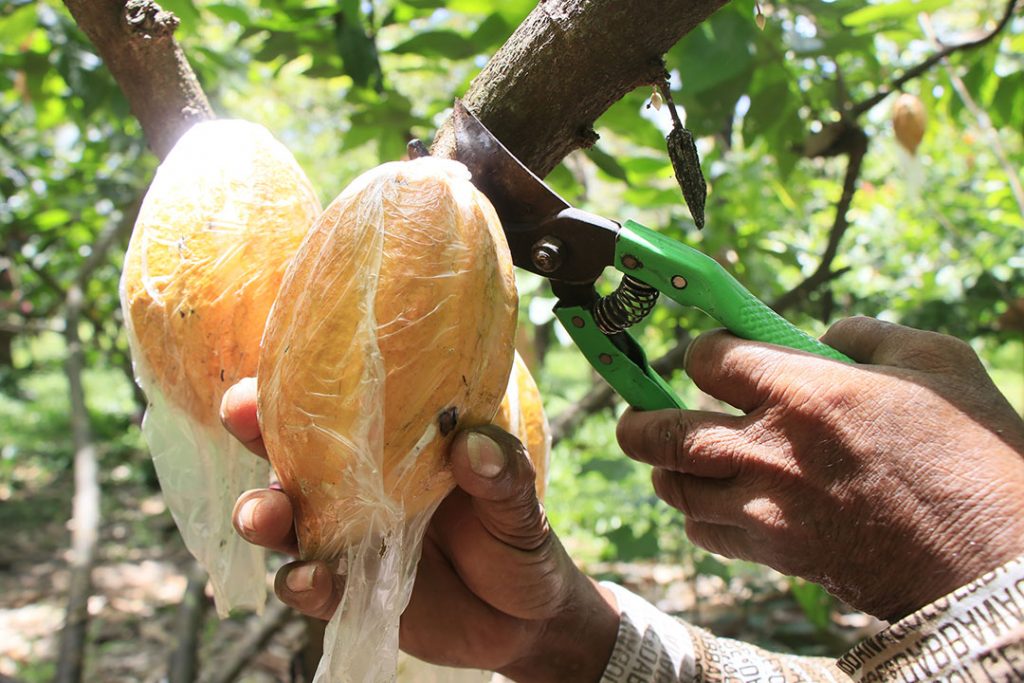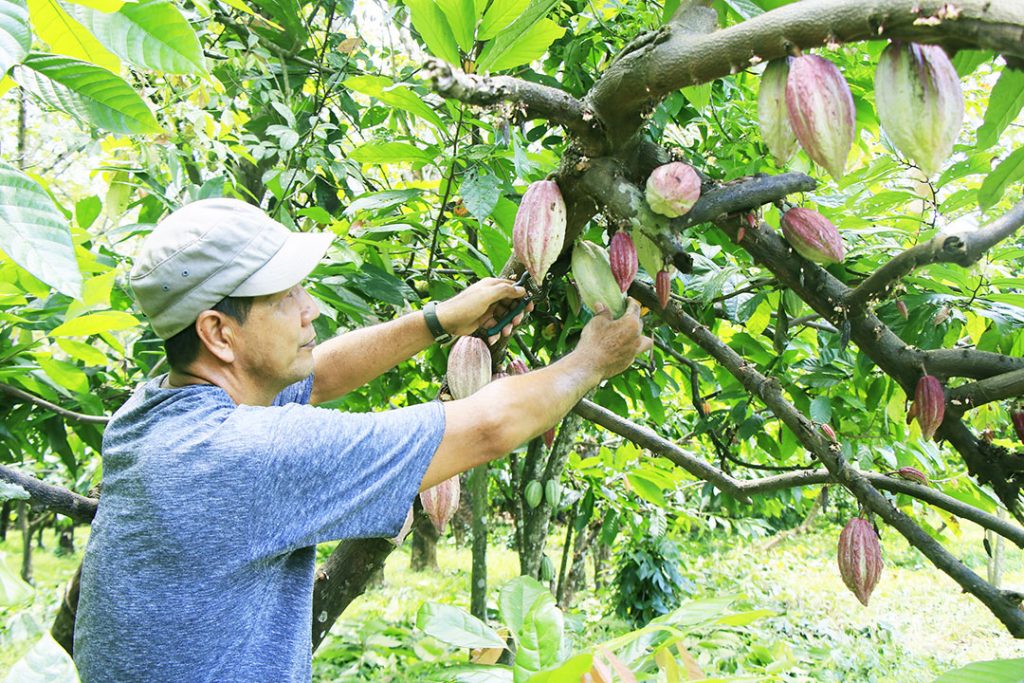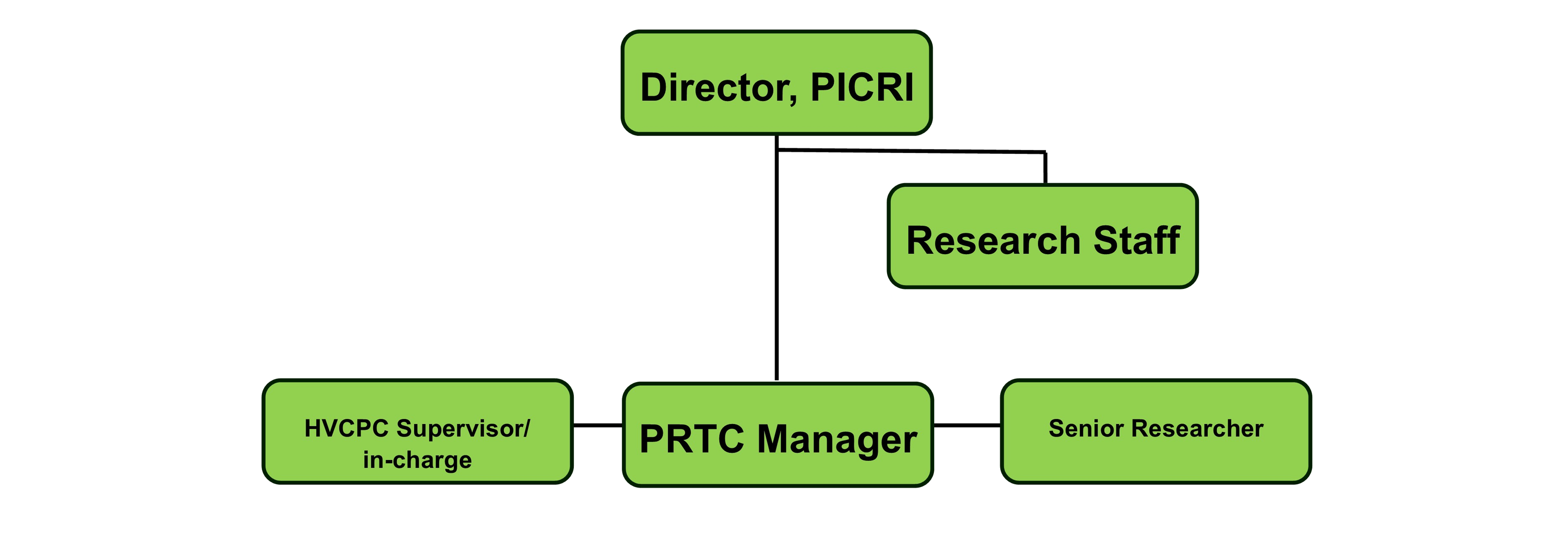About PICRI
GOALS
The institute aims to achieve the following goals:
- to generate and package technologies on rubber, coffee, cacao, oil palm, other oil crops, fiber crops, spices and essential oil-bearing crops, and other industrial crops;
- to disseminate information systematically and effect positive changes on people to improve their quality of life;
- to generate additional income to help sustain the RD & E activities of the institute;
- to strengthen and expand linkages with other agencies in undertaking mutually beneficial programs and projects especially in the realm of research and extension; and
- to enhance resource capability through trainings, seminars, workshops, symposia, techno fora and other scientific-related activities.
FINANCIAL RESOURCES
For CY 2018, the Institute has a total budget of one million one hundred eighty thousand two hundred twelve (Php 1, 180, 212.00) from USM (Fund 101). The said amount is intended for the implementation of the four RDE projects and for the maintenance and operations of the Institute.
Also an additional seven hundred fifty thousand pesos (Php 750,000.00) from the USM Research Fund (Fund 101) was allocated for the conduct of four more RDE projects.
Further, a total of eight hundred sixty six thousand one hundred seven pesos and eighty one centavos (Php 866, 107.81) allocated for continuing researches is monitored by the institute.
MANPOWER DEVELOPMENT
Manpower capabilities of the Institute are continuously being upgraded through short-term trainings and attendance to scientific meetings and conferences. USM Faculty members with PICRI – funded researches have attended several scientific meetings, fora, symposium, seminars and short-term trainings in various fields.
ORGANIZATION AND MANAGEMENT
The Institute is under the administrative supervision of the University of Southern Mindanao. It is headed by a Director, with a three-unit displacement, appointed by the President of the University.
PICRI is backstopped by a team of researchers identified to work on specific commodity in an integrated approach. The Institute has manpower resources who are either part time researchers or on call. Complementing them are research assistants/aides, clerk, janitor, laborers, and farm guard.
The Philippine Industrial Crops Research Institute (PICRI) has continuously developed and improved appropriate, commerciable technologies for sustainable livelihood in agriculture and hence reduces the incidence of poverty in the countryside.
The Philippine Industrial Crops Research Institute (PICRI) envisions to be the center of research, development and extension of high value industrial crops such as rubber, coffee, cacao, oil palm, fiber crops and spices to significantly contribute to the growth and sustainability of the country’s economy. Its mission is to bring about breakthroughs in the development of appropriate technologies for sustainable livelihood in agriculture and industry so as to reduce the incidence of poverty in the country. PICRI was created on February 4, 1986 by virtue of Executive Order No. 1089 under the administration of the late President Ferdinand E. Marcos. The Institute is under the administrative supervision of the University of Southern Mindanao.
PICRI is backstopped by a team of researchers identified to work on specific commodities in an integrated approach. The Institute has manpower resources who are either full-time, part-time researchers or on call. Complementing them are research staff (research assistants/aides, clerk, messenger, plant propagator, tappers, rubber processor, laborers, farm guard, and utility worker.
Since 1989, the Institute has continuously conducted researches on the commodities under its responsibility. This includes researches on rubber (crop improvement, nutrition and processing); coffee (nutrition and farming system); oil palm (nutrition, crop protection and processing); spices (farming system and crop protection).
The Institute has continuously maintained its germplasm collections on rubber, coffee, cacao, oil palm, other oil crops, fiber crops, spices and essential oil-bearing crops. The gene banks of these various industrial crops served as ready sources of planting materials for future breeding works and as source of planting materials for expansion not only at USM but in other areas as well.
Several farmers have been benefited by the technology dissemination activities of the Institute. This was done through the conduct of trainings, workshops, establishment of demonstration farms in strategic locations, publications and exhibits.
The Institute also maintains linkages with various agencies and institutions in various forms i.e. sharing of technologies and information, providing avenues for manpower development, and collaborative research and extension activities.
Manpower capabilities of the Institute have been upgraded through degree oriented and short-term trainings.
Financial resources generated by the Institute for its operation come from Fund 101 of the University of Southern Mindanao.
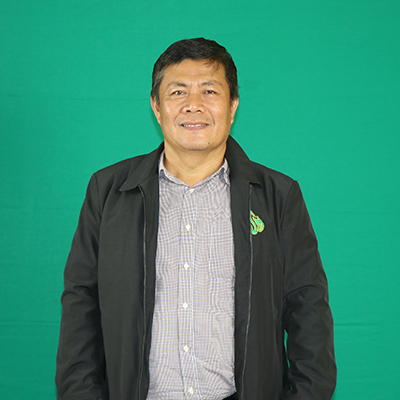
Abubakar A. Murray, EdD
Director

Queenie Anne T. Baduel
Research Assistant
Centers
USM Funded Researches
- Germplasm Collection, Preservation and Perpetuation of Philippine Indigenous Fruit Crops (Rezin G. Cabantug)
- Comparative Performance of Native and Hainan Varieties of Black Pepper using Different Trellis and Type of Planting Materials (Sheena B. Lucena, Nancy E. Duque)
- Enhanced Agri-Tourism Development for Herbs, Spice and Medicinal Plants (Rhodora S. Manceras)
Products

Technology
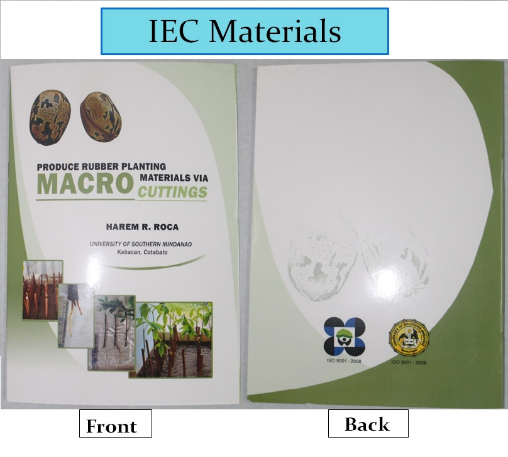

1.
5th Place Best Product Competition
15th Agriculture and Fisheries Technology Forum and Product Exhibition
BAR Grounds, Diliman, Quezon City
August 16, 2019

2.
1st Outstanding Utility Model
2019 regional Invention Contest & Exhibits
SM City, General Santos City
December 5, 2019

3.
2nd Outstanding Utility Model
2019 Regional Invention Contest & Exhibits
SM City, General Santos City
December 5, 2019

4
The Art of Success
2020 State Universities and Colleges Expo
Activity Center, Ayala Malls TriNoma
March 9-11, 2020

